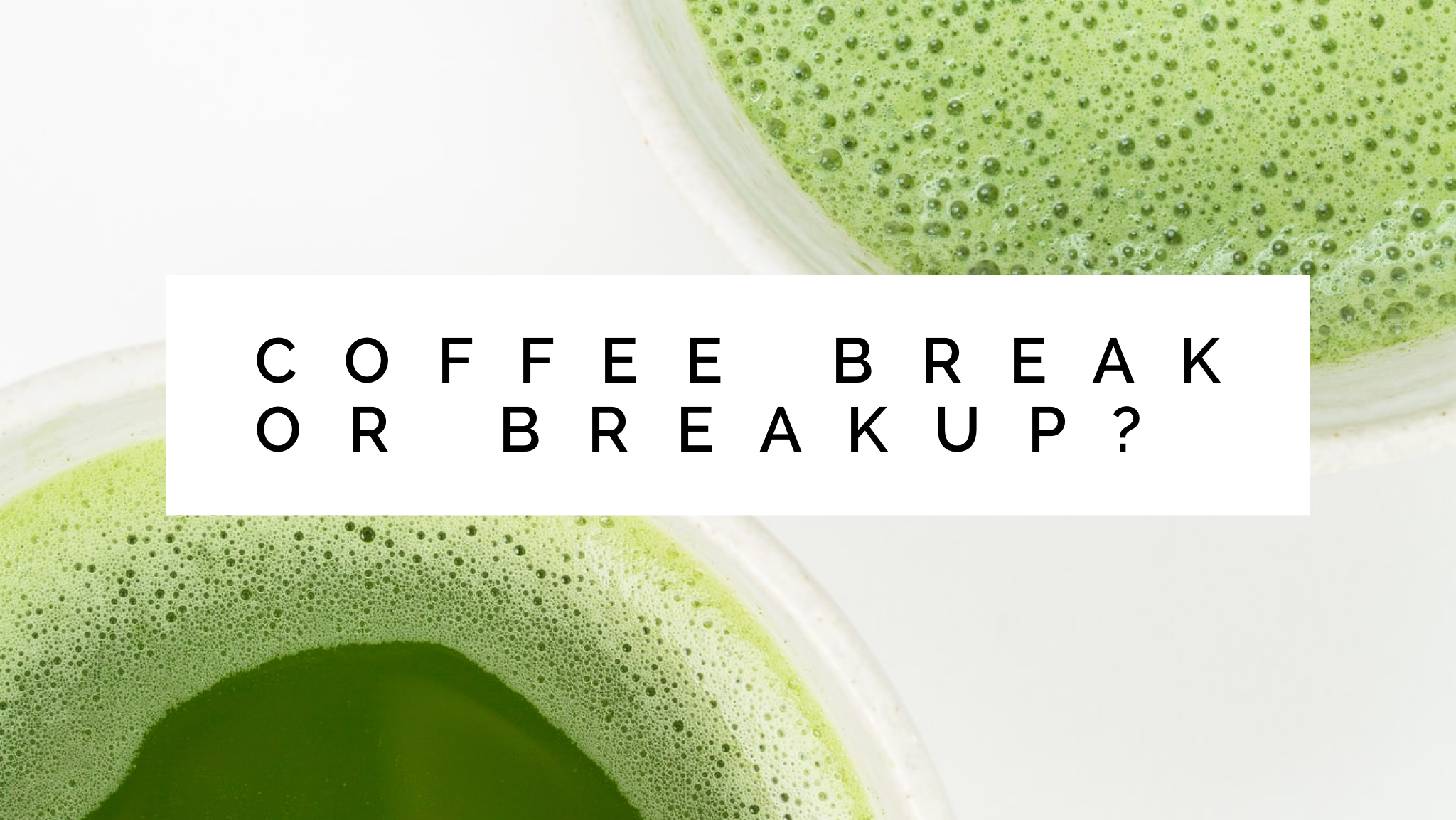Coffee Re:Defined

There are so many positive health benefits to coffee. I love it for mental focus and improving my physical performance with my workouts. It has positive benefits to boost mood, decrease appetite, and improve memory. Research has show it to be helpful for alzheimer’s prevention, diabetes, and even heart disease.
However there are some downfalls to coffee, if it triggers anxiety for you, the crash increases cravings, an unhealthy dependency, can’t function without it, taxing your adrenal glands that are already worn out to keep pumping out more stress hormones, dehydrating effects, depleting key nutrients, and disrupting our hormones.
I want you to be able to use coffee for the positive benefits and support your body without it hindering your health and hormones.
To do that, Self Awareness is a MUST. Coffee impacts women in different ways. I want you to know if it is helping or hurting you and your hormones. The best way to drink and the appropriate amount to enjoy all the benefits without the crash, addiction, and jitters.
Our genetics, digestion, and stress levels all impact how caffeine will be for you and your body. Knowing your body is extremely important.
When stress is high coffee can be overstimulating for our nervous system, so you may need to intentionally offset stress to be able to enjoy your coffee with less negative side effects. I will show you ways to do that in this weeks coaching.

Our genes play a major role in how our body metabolizes caffeine. Some people respond well, but some of us don’t respond well to caffeine. Fast metabolizers can drink coffee latter in the day and not have it affect their sleep. Compared to slower metabolizsers who notice they can only have coffee in the morning otherwise their sleep will be disrupted. Our genes predispose us to how fast we metabolizes caffeine.
According to Pathway Genomics, “CYP1A2 is the key liver enzyme (special proteins that breakdown and use other substances) responsible for metabolizing caffeine. Variations in the CYP1A2 gene have a big impact on how caffeine affects our bodies. Therefore, you may be a fast or slow caffeine metabolizer based on your CYP1A2 genetics.”
Slow caffeine metabolizers are at an increases risk for the negative side effects and health issues.
It is not a matter of coffee being good vs bad, but a matters who you are.
Besides the CYP1A2 gene, we also have other Genesee like DRD2 that can impact how your body responds to caffeine.
"Variations in the dopamine receptor gene DRD2 may also influence your coffee devotion or aversion. And the gene ABCG2, which is involved in the transport of compounds across the blood-brain barrier, may affect how much caffeine reaches your central nervous system, Cornelis also found".

Omega 3 fatty acids - Improve cellular health, cognitive health, mood, and inflammation. 1000-2000 mg per day.
Rhodiola - Women with hormone imbalance. Multiple studies show it is great for memory, brain fog, fatigue, increased attention span, increased energy. This really is my secret weapon. 250-500 mg per day.
Ashwaganda- Adaptogenic herb to work with your body. Helps your body cope with stress. Increases mental function. Is used for fertility for men and women. Improves arthritis, asthma, I recommend 250-300mg (500 max) per day.
B Complex- Natural source of energy without the jitters.


1.Mud/Wtr - If you find that coffee does not work well for your body, or you need a break. I recommend Mud/Wtr. I love how Mud/Wtr makes me feel. You can also add Mud/Wtr to your coffee for added benefits. It is worth ordering just for the frothier they send you. It works so well! I love it!
MUD\WTR™ is a coffee alternative consisting of organic ingredients lauded by cultures old and young for their health and performance benefits. With 1/7th the caffeine of coffee, mud gives you natural energy, focus and more without the jitters and crash.

2. Greens powder to energize cells from the inside out.
3. Matcha green tea - the caffeine is released slower and has L-theanine so energizing and more calming at the same time.
4. Decaf - Lots of chemicals are used to make coffee decaf. When choosing decaf look for Swiss Water Decaf to enjoy.

1. 1-2 cups (300 mg of caffeine or less)
2. Brown filters
3. Filtered water
4. Organic coffee
5. Fresh - the longer it sits the more acidic it becomes
6. With a meal or after a meal. Or add fat and protein to your coffee.
7. Early. Before 2pm OR 6-10 hr before you plan to go to bed for the night. Caffeine can stay in our body for 6-10 hours, so make sure it does not negatively impact your sleep
8. Upgrade your coffee add ins. Adding fat to your coffee can help offset the acidity of coffee and also prevent it from impacting your blood sugar too much. Watch out for artificial sweeteners, syrups, and adding lots of sugar. Starting your day with sugar can put you on a roller coaster ride all day with an increase in appetite and cravings for more sugar. There are many non-dairy and cleaner coffee creamers available.

Enjoy Coffee + All it’s Benefits: If you can say YES to these questions.
- Can I enjoy it in moderation?
- Does it make me feel happy, in a better mood, energized?
- Does it help decrease my appetite and eat healthy?
- Does it help me workout, boost physical energy, performance, endurance, and stamina?
- Does it improve my memory, focus, and attention?
- Can I stop drinking it without getting a headache?
- Do I still have natural energy without it?
- Am I able to fall asleep within 20 minutes, stay asleep for 7 hours, and wake up rested?
- Is my cycle normal with little to no PSM symptoms?
- Do I eat a nutrient rich diet and stay hydrated?
Take a break, Decrease, Breakup or Make a Switch: if you say YES to these questions.
- Are you addicted? I HAVE to have it or I really enjoy it?
- Do I feel anxious or nervous after I drink coffee?
- Do I feel on edge, angry, and moody?
- Is my stress level through the roof and have I been under prolonged stress for a long period of time?
- Does it blur my vision, make it hard for me to concentrate, and to focus?
- Do I depend of coffee to wake up and get going?
- Do I feel exhausted all the time with no energy?
- Do I have trouble falling asleep, staying asleep, or waking up feeling rested?
- Does it cause a major crash in my energy when it wears off?
- Do I have bad PMS, poor diet, and do not drink water?
- Does I have an increase in my appetite and cravings when the caffeine wears off?
All my Best,
Jessica

